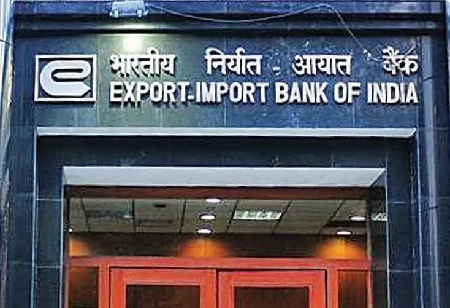Exim Bank has launched India Exim Finserve in GIFT City
By Consultants Review Team
 At the Gujarat International Financial Tec-City (GIFT City), the export financing institution Exim Bank officially launched its subsidiary, India Exim Finserve IFSC Private Limited. The subsidiary, which was launched by Dr. Vivek Joshi, Secretary of the Department of Financial Services (DFS), will provide Indian exporters a variety of trade financing instruments, with an emphasis on export factoring. Exim Finserve will provide a combination of three services to exporters receivables financing, coverage of the risk of non-payment and management of accounts receivable. This would lead to improved cash flow and reduced payment risk for exporters, enabling them to explore new markets. The factoring services by the first finance company in GIFT City in the area of export factoring would be particularly beneficial for MSME exporters as it is primarily based on the quality of accounts receivable, rather than collateral, according to a release by the company, according to a release by the company.
At the Gujarat International Financial Tec-City (GIFT City), the export financing institution Exim Bank officially launched its subsidiary, India Exim Finserve IFSC Private Limited. The subsidiary, which was launched by Dr. Vivek Joshi, Secretary of the Department of Financial Services (DFS), will provide Indian exporters a variety of trade financing instruments, with an emphasis on export factoring. Exim Finserve will provide a combination of three services to exporters receivables financing, coverage of the risk of non-payment and management of accounts receivable. This would lead to improved cash flow and reduced payment risk for exporters, enabling them to explore new markets. The factoring services by the first finance company in GIFT City in the area of export factoring would be particularly beneficial for MSME exporters as it is primarily based on the quality of accounts receivable, rather than collateral, according to a release by the company, according to a release by the company.
Speaking at the occasion, Exim Bank Managing Director Harsha Bangari highlighted that the launch of Exim Finserve aligns with the bank’s growing focus on meeting the financing gaps faced by MSME exporters. She noted that Exim Finserve, through its factoring services, will enhance the export competitiveness of MSMEs as they can offer competitive credit terms to their buyers without associated risks and cash flow difficulties. With the launch of Exim Finserve, the export financier is now covering the entire canvas of trade with bank-intermediated trade finance along with open account trade. Exim Bank also released a study titled “Strengthening Collaborations to Bridge the Trade Finance Gap: Insights for G20 Countries” during the occasion. The study notes that the trade finance gap expanded to US$ 2 trillion in 2021/22.
Some of the strategies highlighted in the study to bridge the gap include harmonization of KYC standards for reducing frictions in cross-border payments; leveraging automation and digitalization for trade finance; enhancing collaboration among multilateral development banks, export credit agencies and national development finance Institutions; exploring alternative trade financing such as supply chain financing solutions; creating a trade finance facility through cooperation among G20 countries; and bridging the data gaps in trade finance to improve trade finance policy design and operation.




